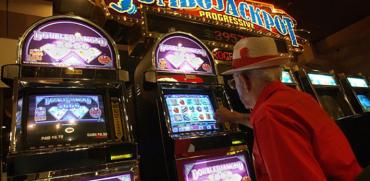
Incoming Senate President Bill Galvano, a long-time gambling expansion supporter, and incoming House Speaker Jose Oliva met Thursday with Seminole Gaming CEO Jim Allen, Seminole Tribe Council Chairman Marcellus Osceola, and Tribal General Counsel Jim Shore to “[reopen] lines of communication” regarding a gambling plan that involves the Seminoles’ casino operations in the state.
According to Casino News, legislative leaders hope to be able to craft and shake hands with tribal officials on a plan before the upcoming November ballot, during which Florida voters will be able to cast their votes on whether they should be given the final say on any future gambling expansion proposals.
If 60 percent of all voters cast a positive vote in the November ballot, it would result in a constitutional amendment which will limit significantly the Legislature’s power over any gambling expansion decisions. That power will be given to Florida voters who will have to approve by a statewide vote any proposed addition of more gambling options within the state’s borders.
Following the Thursday meeting, Galvano told reporters that the legislative team is keen to negotiate a plan with tribal officials before the November vote. The incoming Senate president, with Oliva, his House colleague, are slated to assume their new posts after the November vote.
Galvano said they consider it important to complete an agreement with tribal officials because Florida receives a significant share of the tribe’s casino revenue each year and the state’s future contributions need to be secured before the Legislature’s potential stripping of power over gambling-related decisions.
Under a 2010 compact between the state and the Seminole Tribe, the latter was given the monopoly over certain “banked” table games in exchange for a portion of its casino revenue. Some of the provisions in the compact expired in 2015, and tribal officials and state legislators locked horns in a prolonged court battle over the tribe’s table games exclusivity.
The suit ended with a settlement between the Seminoles and Gov. Rick Scott, which is yet to be ratified. Under that settlement, the tribe’s casinos will have their exclusivity over certain table games extended. In exchange, the Seminoles will have to pay the annual amount of $250 million to the state.
The Florida House moved the bill last week that would ratify the new compact. It is also important to note that the Senate advanced its own gambling-focused bill earlier this month. The Senate piece proposed a massive overhaul of the state’s gambling industry, including the addition of more gambling options.
The bill once again deals with the controversial topic of the addition of slot machines at gaming parlors across eight Florida counties that had previously approved the measure via countywide votes. That particular provision has been among the main stumbling blocks before the legislative piece over the past several years. The Florida House has traditionally been more conservative in its stance on gambling, and any gambling expansion proposals have been treated by the lower chamber with great reserve.
Commenting on the possibility for a gambling expansion plan that satisfies both chambers of the Legislature, industry stakeholders, and residents of the state, Galvano said the chances for the ratification of such a plan before the November vote are very slim.


